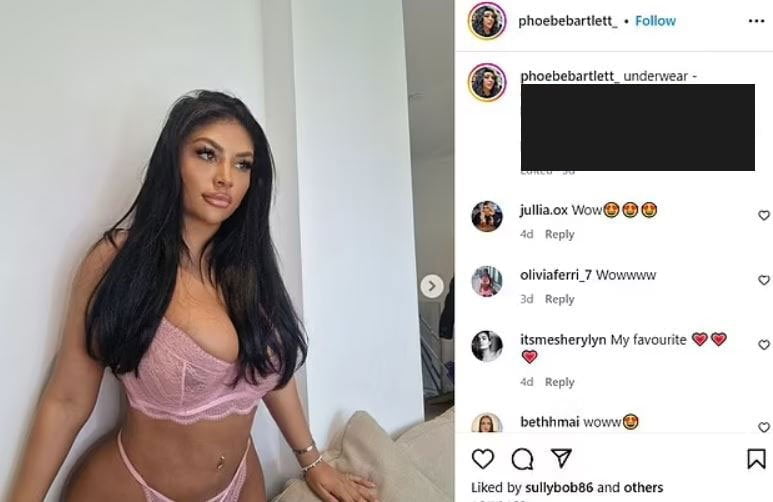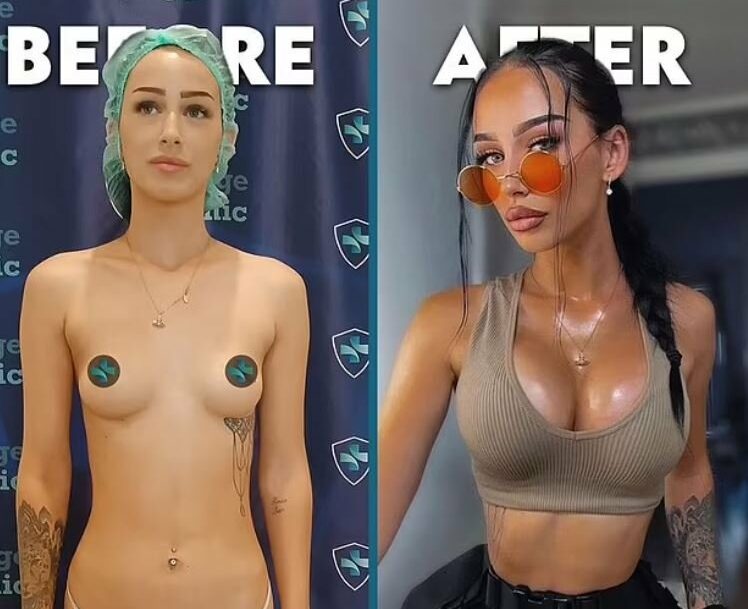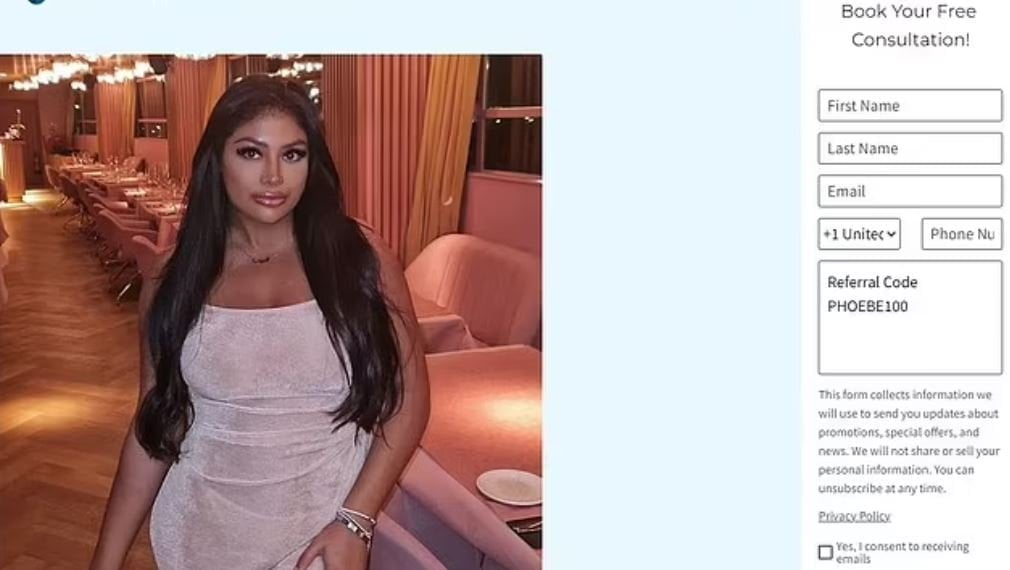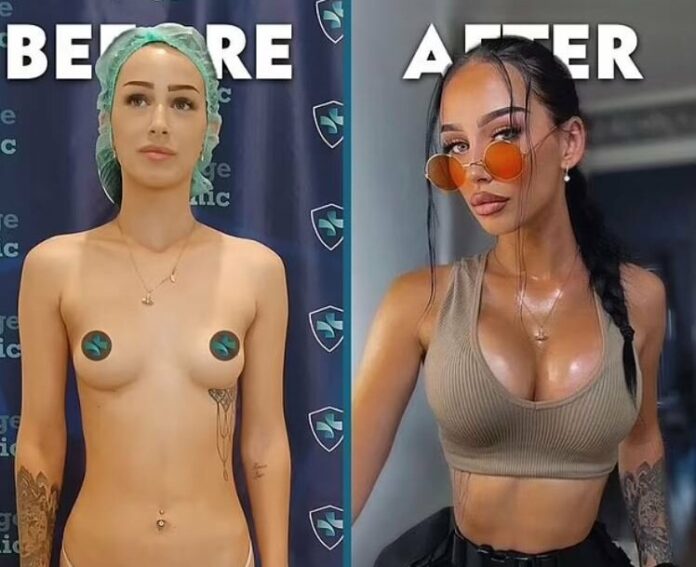The Dark Side of Plastic Surgery Promotions: Exploiting Security Vulnerabilities for Profit What Onlyfans Models Do…
In recent times, Turkey has become a focal point in the field of aesthetic tourism, frequently making headlines in international media. However, this time, it’s the British press that has turned its spotlight on Turkey.
According to an article published in the British Daily Mail newspaper, aesthetic surgery clinics in Turkey are resorting to using social media influencers and OnlyFans models to attract British women.
The promotion of procedures like breast augmentation and buttock lifts has drawn sharp criticism from experts who argue that such tactics exploit insecurities prevalent among young women, promoting an unrealistic ideal.
Exploiting Insecurities: The Role of Social Media Influencers
The tactics employed by these clinics are concerning, as they not only target vulnerable individuals but also perpetuate unrealistic beauty standards. Collaborations between clinics and individuals with large social media followings, such as OnlyFans models like Phoebe Bartlett, raise ethical questions about the integrity of the cosmetic surgery industry.

Phoebe Bartlett’s Controversial Partnership
The Daily Mail’s investigation reveals a disturbing trend where clinics in Istanbul collaborate with individuals like Phoebe Bartlett to offer discounts on cosmetic procedures. Bartlett, who underwent a buttock lift procedure at a clinic in January, promoted a £100 discount code valid for all procedures to her followers. However, the extent of the procedure, involving the extraction and injection of seven liters of fat, far exceeds the recommended limits advised by surgeons in the UK.
Questionable Marketing Practices
Bartlett’s endorsement of the clinic on social media, coupled with the inclusion of her name in a promotional code on the clinic’s website, raises ethical concerns about the commodification of cosmetic surgery and its promotion as a consumer product. Such marketing strategies not only trivialize serious medical procedures but also exploit the vulnerabilities of individuals seeking to conform to societal beauty standards.

Ethical Dilemmas in Cosmetic Surgery Promotion
The Daily Mail’s investigation uncovered multiple instances where clinics in Istanbul engaged with OnlyFans models to promote their services. From Ivy Red’s liposuction and buttock lift reference video on Instagram to Lucy Bouverie-Brine’s endorsement of a cosmetic surgery package, these collaborations blur the lines between medical practice and commercial enterprise.
Glamourizing Cosmetic Surgery: A Dangerous Trend
The glorification of cosmetic procedures as luxurious experiences akin to vacation packages is deeply concerning. Models like Sophia Petrou, with approximately 60,000 Instagram followers, extoll the virtues of clinics by describing their VIP treatment, including being chauffeured in a limousine and accommodated in five-star hotels. Such narratives trivialize the risks associated with surgery and promote an unrealistic portrayal of cosmetic interventions as glamorous lifestyle choices.
Dawn Knight’s Advocacy Against Exploitative Practices
Dawn Knight, who campaigns against unethical practices in cosmetic surgery, denounces the exploitation of vulnerable individuals by Turkish clinics offering promotional packages akin to holiday deals. Knight’s personal experience of a botched eye surgery underscores the real dangers posed by unscrupulous practitioners seeking to profit from individuals’ insecurities.

Addressing Concerns and Advocating for Informed Decision-Making
As concerns grow over the exploitation of vulnerable individuals by cosmetic surgery clinics, there is a pressing need for greater transparency and ethical oversight within the industry. Organizations like Not Just Behavior and individuals like Chris Calland advocate for informed decision-making and critical dialogue surrounding body image issues, particularly among young women.

Katharine Wright’s Warning on Social Media Influence
Katharine Wright from the Nuffield Bioethics Council warns about the detrimental effects of social media on body image perceptions, highlighting the responsibility of platforms and influencers in promoting realistic and healthy ideals. The influence wielded by social media personalities, coupled with the commercial interests of cosmetic surgery clinics, underscores the urgent need for regulatory measures to protect consumers from exploitation and misinformation.
In conclusion, the exploitation of insecurities for commercial gain within the cosmetic surgery industry is a pressing ethical issue that demands greater scrutiny and accountability.
Collaborations between clinics and social media influencers must be approached with caution, and efforts should be made to promote responsible practices and informed decision-making among consumers. Only by addressing these concerns can we ensure the integrity and safety of cosmetic procedures while fostering a culture of body positivity and self-acceptance.
